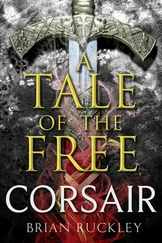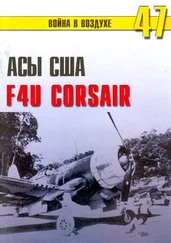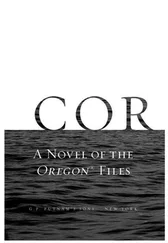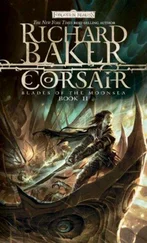Unlikely though they may seem, several of the characters mentioned in the preceding pages were real: the reverend Devereux Spratt, Rector of Mitchelstown in North Cork, had been a slave in Algiers. Samuel Martin was the English consul in Algiers between the years 1673 and 1679, while Jean Baptiste Brodart, the Intendant of the Royal Galley base at Marseilles, was renowned for his venality. Joseph Maimaran, a Moroccan Jew, acted as chief financial adviser to the megalomaniac Emperor Moulay Ismail and served for many years as virtually his first minister as well as chief money lender. Unwisely Maimaran asked for repayment of a loan, and paid for his lese-majesty with his life. He was knocked down and trampled to death in the street by a loose horse belonging to a member of the Black Guard. The death looked like an accident but contemporary opinion held it was an assassination ordered by Moulay. The Emperor himself ruled until 1727, dying in his eighty-first year, and he did have an Irish gun founder who was overfond of the bottle. What happened to his monstrous favourite wife, Zidana, is not known. Famously, Moulay is reputed to have sired 888 children – 548 sons and 340 daughters – during his lifetime.

Read on for an exclusive extract from Hector Lynch’s next adventure . . .
Published by Macmillan in March 2008
Copyright ©Tim Severin 2007
ONE

HECTOR LYNCH leaned back and braced himself against the sloop’s mast. It was hard to hold the little telescope steady against the rhythmic rolling of the Caribbean swells, and the image in the lens was blurred and wavering. He was trying to identify the flag at the stern of a vessel which had appeared on the horizon at first light and was now some three miles to windward. But the wind was blowing the stranger’s flag sideways, directly towards him, so that it was difficult to see against the bright sunshine sparkling off the waves on a late-December morning. Hector thought he saw a flicker of blue and white and some sort of cross, but he could not be sure.
‘What do you make of her?’ he asked Dan, offering the spyglass to his companion. He had first met Dan on the Barbary coast two years earlier when both had been incarcerated in the slave barracks of Algiers, and Hector had developed a profound respect for Dan’s common sense. The two men were much the same age – Hector was a few months short of his twentieth birthday – and they had formed a close friendship.
‘No way of telling.’ said Dan, ignoring the telescope. A Miskito Indian from the coast of Central America, like many of his countrymen he had remarkably keen eyesight. ‘She has the legs of us. She could be French or English, or maybe from the English colonies to the north. We’re too far from the Main for her to be a Spaniard. Perhaps Benjamin can say.’
Hector turned to the third member of their small crew. Benjamin was a Laptot, a freed black slave who had worked in the ports of the West African coast before volunteering to join their vessel for the voyage across the Atlantic and into the Caribbean.
‘Any suggestions?’ he asked.
Benjamin only shook his head. Hector was unsure what to do. His companions had chosen him to command their little vessel, but this was his first major ocean voyage. Two months ago they had acquired their ship when they had found her stranded halfway up a West African river, her captain and officers dead of fever, and manned only by Benjamin and another Laptot. According to the ship’s papers she was L’Arc-de-Ciel , registered in La Rochelle, and the broad empty shelves lining her hold indicated that she was a small slave ship which had not yet taken on her human cargo.
Hector wiped the telescope’s lens with a strip of clean cotton rag torn from his shirt, and was about to take another look at the stranger’s flag when there was the sound of a cannon shot. The noise carried clearly downwind, and he saw a black puff of gun smoke from the sloop’s deck.
‘That’s to attract our attention. They want to talk with us,’ said Benjamin.
Hector stared again at the sloop. It was obvious that she was closing rapidly, and he could see some sort of activity on her stern deck. A small group of men had clustered there.
‘We should show them a flag,’ Benjamin suggested.
Hector hurried down to the dead captain’s cabin. He knew there was a canvas bag tucked away discreetly in a locker behind the bunk. Hector pulled open the bag and tipped out its contents on the cabin floor. There were some items of dirty linen and, beneath them, several large rectangles of coloured cloth. One had a red cross stitched on a white ground which he recognised as the flag flown by the English ships that had occasionally visited the little Irish fishing port where he had spent his summers as a child. Another was a blue flag with a white cross. In the centre of the cross was a shield bearing three golden fleur-de-lys. That flag too he recognised. It had flown on the merchant ships of France when he and Dan had been prisoner-oarsmen at the royal galley base in Marseilles. The third flag he did not know. It also displayed a red cross on a white background, but this time the arms of the cross ran diagonally to each corner of the flag, and the edges of the arms of the cross were deliberately ragged. They looked like branches cut from a shrub after the shoots had been trimmed away. It seemed that the deceased captain of L ’ Arc-de-Ciel had been prepared to fly whichever nation’s flag suited the occasion.
Hector returned on deck, all three flags under his arm in an untidy bundle. ‘Well, which one is it to be?’ he asked. Again he glanced across at the unknown vessel. In the short interval he had been below decks it had come much closer. Well within cannon shot.
‘Why not try King Louis’s rag?’ proposed Jacques Bourdon. In his mid-thirties Jacques was an ex-galerien, a thief condemned to the oar for life by a French court and he had GAL branded on his cheek to prove it. He, together with the second Laptot, completed their five-man crew. ‘That way our colours will agree with our ship’s papers,’ he added, shading his eyes to scrutinise the approaching sloop. ‘Besides . . . if you look there, she’s flying the French flag as well.’
Hector and his companions waited for the stranger to come closer. They could see someone at her rail waving his arms. He was pointing at their sails and gesturing that they should be lowered. Too late, Hector felt a prickle of suspicion.
‘Dan,’ he asked quietly, ‘any chance that we can get away from her?’
‘No chance at all,’ Dan answered without hesitation. ‘She’s a ketch and carries more sail than us. Best heave to and see what they want.’
A moment later Bourdon was helping the two Laptots loose the sheets and lower the sails so that L ’ Arc-de-Ciel gradually slowed to a halt, and lay gently rocking on the sea.
The approaching ketch altered course to come alongside. There were eight cannon on her single deck. Then, without warning, the little group on her stern deck parted to reveal someone hauling briskly on a halyard. A ball of cloth was being pulled aloft. A puff of wind caught it and the folds of cloth shook out, revealing a new flag. It carried no marks, but was a plain red sheet.
Jacques Bourdon swore. ‘Shit! The jolie rouge . We should have guessed.’
Startled, Hector looked at him. ‘The jolie rouge ,’ Bourdon grunted. ‘The flag of the flibustiers , how do you call them – privateers? It’s their mark. I shared a Paris prison cell with one of them, and a right stinking bastard he was. Smelled worse than the rest of us gaolbirds put together. When I complained, he told me that in the Caribbees he had once gone two years without a proper wash. Claimed to have dressed in a suit of untreated cattle skins.’
Читать дальше










